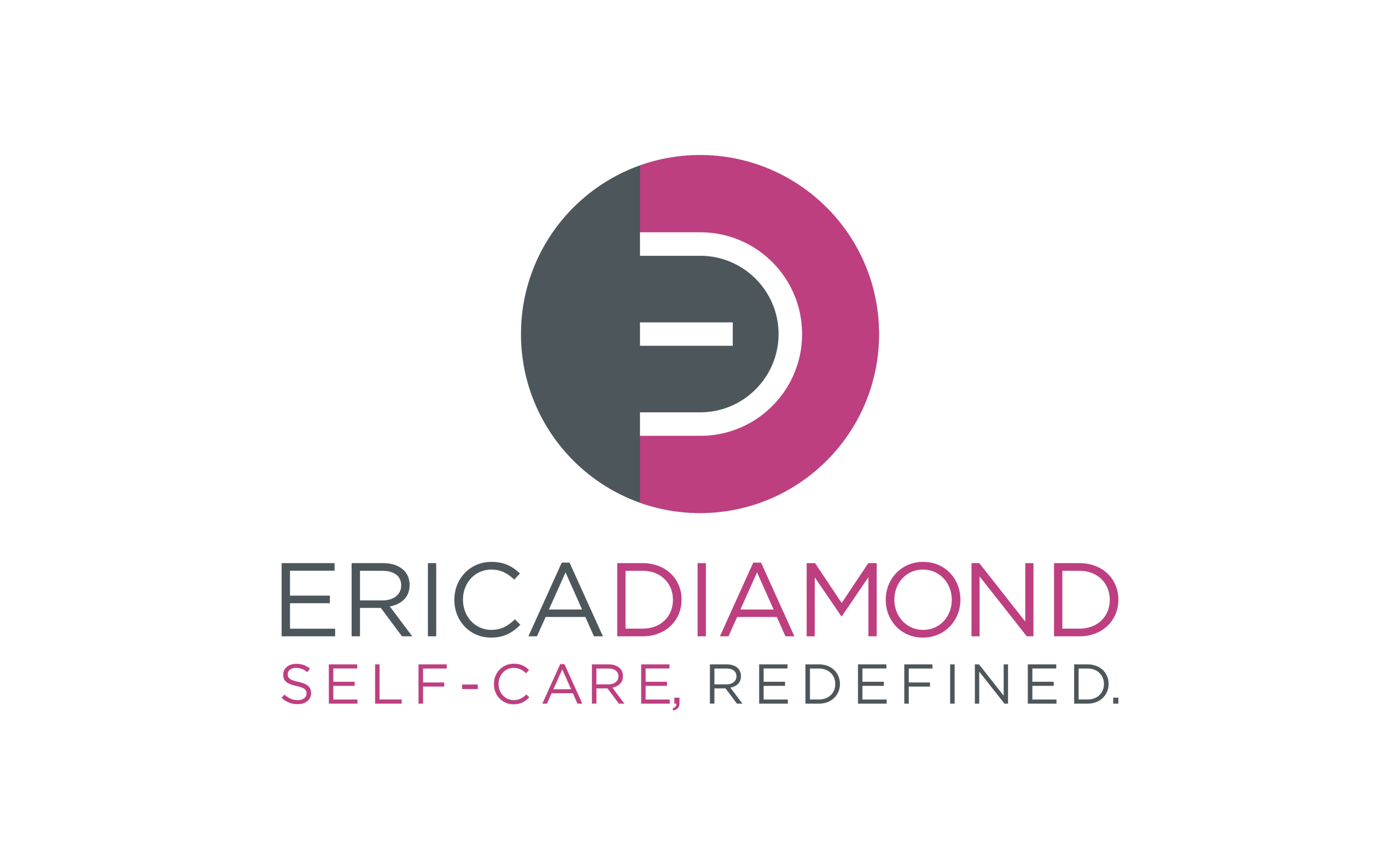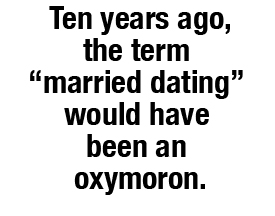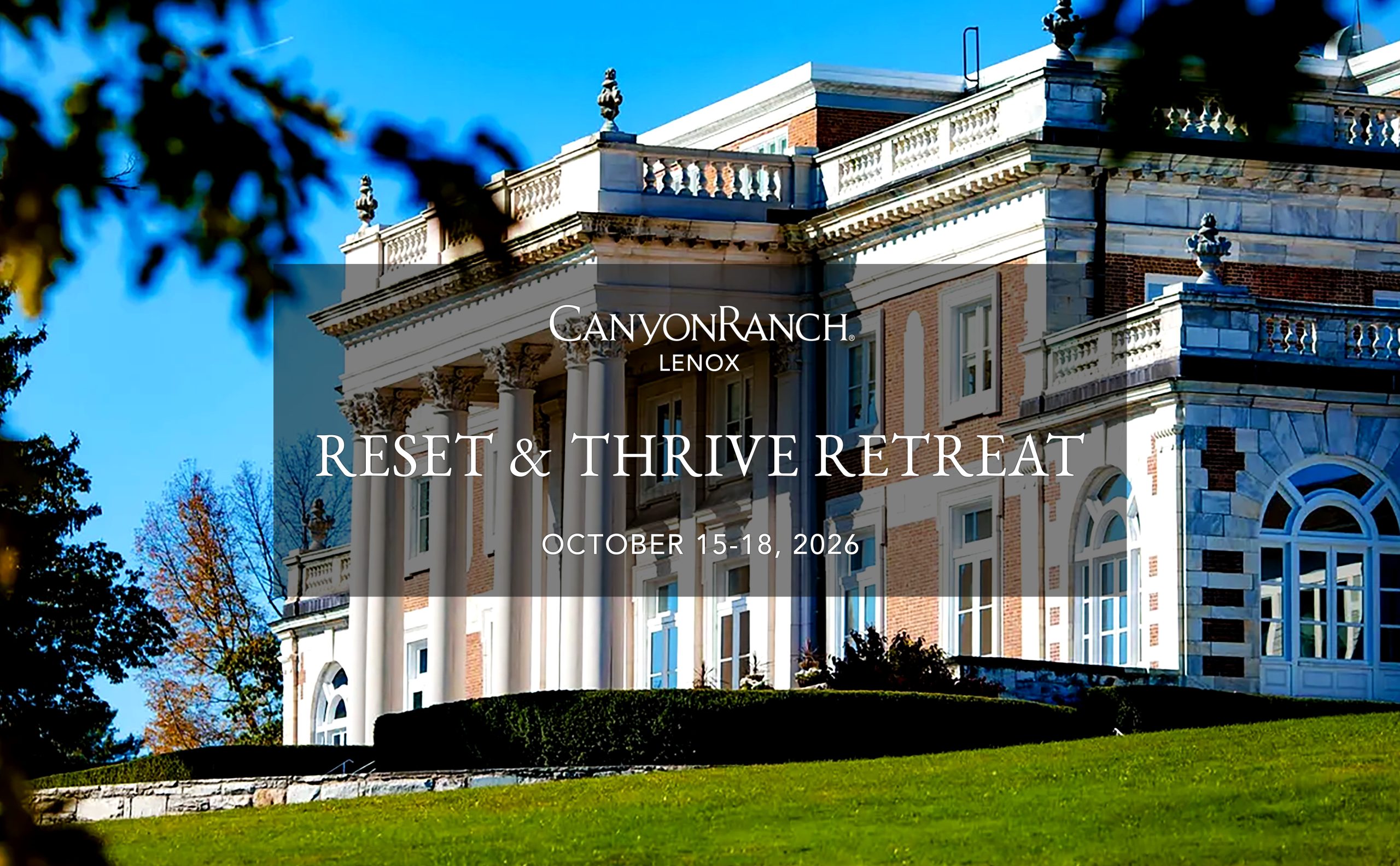By Guest Blogger Erin Blaskie
Forewarning by Erin: This post explores some topics that will challenge the ideas and concepts of traditional marriage. If you do not have an open mind beyond the traditional setup of marriage, please save yourself the time and skip this post. It is not that I do not welcome varying opinions and thoughts, but it is likely not going to be something you will agree with or can agree with, and will likely bring forth negative emotions that I simply do not want you to have to experience. If you have an open mind, and an open heart, read on…
* * *
In the past few years, I’ve witnessed an interesting phenomena happening amongst my married peers, relatives and friends. An unhappiness of sorts… an unease… an unsettling.
I’ve heard more talk of open marriages and polyamory and polygamy in the past five years than I have in my entire life. Some of that is due to my growing older, and some of that is due to the Internet becoming a much more accessible place for information.
About five years ago, I came across Helen Fisher, an anthropologist who studies gender differences and the evolution of human emotions. Ms. Fisher has delivered two amazing presentations as part of the TED series, which are two videos I stumbled on back in 2008. One is called “The Brain in Love” and the other is called “Why We Love, Why We Cheat.”
In “The Brain in Love,” she shares the power of romantic love and how it affects us as human beings on a biological level and why we are often willing to live for love, die for love and kill for love. In “Why We Love, Why We Cheat,” she explains how it is possible, biologically, for us to have feelings of love for more than one human being and how that can lead to unrest in the human soul.
When you look at the biology of how we are wired as humans, it’s easy to wonder where the idea and tradition of monogamy and singular marriage came from. I spent some time reading up on both the history of monogamy and of marriage on Wikipedia and I’ll tell you, there is a lot of information there on the background of each. So much so, that it still didn’t help me come to a concrete response to the questions: why are we monogamous and why do we get married?
A couple of months ago, I came to the realization that while I loved my husband dearly, I was not necessarily meeting all of his needs as he needed them to be met, and vice versa. It made me wonder, and discuss with him, why we marry one person, often at a young age, and then assume (hope?) that they are going to be able to meet all of our needs for all of eternity. That seems like a tall order for anyone – especially when you factor in the duration of a marriage and how much human beings change over time.
I also began to realize that our life today is very different from our ancestor’s lives. In the past, people often lived in smaller communities and were often introduced to a partner via a close family member or friend and they married for practical reasons. Of course there were still moments where people were marrying for love, but in historical times, people married for practicality, convenience and for child-rearing. If love blossomed, that was a bonus. In fact, that is exactly what Stephanie Coontz, author of Marriage, a History has said about the setup of marriages in the 19th century (and earlier): ”If love could grow out of it, that was wonderful, but that was gravy.”
Today, we have things like the Internet and accessible travel and TV and movies and all sorts of displays and examples and idea-generators about who is out there in the world and what else exists beyond a five-mile radius. In fact, Facebook, which boasts more than 350 million active users, is mentioned by name in almost 20% of divorce petitions, according to Divorce-Online. Herein lies one of the main issues that marriages face in 2013.
Today, when faced with a marriage that is growing apart, we have ample opportunities to experience other people (not sexually speaking, although that exists as well, but I’m talking emotionally and mentally here) in such a way that allows you to receive a different type of connection than the one you might have with your partner. You may even experience this with one of your close friends or a family member – again, this isn’t about anything romantic or sexual, it is simply the idea of being emotionally connected to another human being in a different way than you are with your partner. According to LifeScript.com, an emotional connection is a bundle of subjective feelings that come together to create a bond between two people.
When we experience this unrest and we feel like the person we are with doesn’t “get us” to our core, yet we find someone who does, it’s easy to think to oneself, “Well, I should end this marriage because I know that what I want is out there and I want to experience THAT.” However, we are complex little creatures and will likely still be left feeling like a single human being can not truly meet all of our needs. As Helen Fisher describes, we’ll experience those first few weeks, months, even years where we think that one person is the be all and end all to our relationship desires, but eventually, we’ll likely begin to have romantic thoughts about other people on a deep, emotional level.
I believe, and it’s something my partner and I are exploring right now, that you can have a completely solid primary relationship and also experience other human beings in a way that allows you to have most of your needs met. For example: being married and dating other people. I truly believe that the tradition of marriage will decline as our children age and as their children age and eventually, we’ll likely have many primary partnerships with those primaries having second, third and possibly fourth relationships in which all parties are consenting and enjoying the unique relationship they have with one another.
If we can move into a society where we are more accepting of the fact that not one single person is going to meet all of our needs, I think we can all breathe a collective sigh of relief. If we allowed ourselves to experience the personalities, joy, humor and excitement of different people, while holding on to the concept of a strong family unit and partnership, I wonder if our divorce rates would go down. I wonder if happiness levels would rise. I wonder if affairs would happen less often.
It may be a naive way to look at the world, it might be viewed as immature to others and it might be frowned upon by those who believe marriage is a blessed union, but I believe that our future generations will be more open, accepting and free with their love and in turn will have the opportunity to experience life at such a rich and deep level.
What say you? Is this a completely absurd way to view relationships and marriage or do you believe, as I do, that the definition of “marriage” is changing and will continue to change over time? Leave your thoughts in the comments below.
—
About Erin Blaskie
Erin Blaskie first got into computers when her dad handed her a Commodore 64. She was six years old. When the Internet became widely available, Erin started an online journal on the platform Open Diary and began sharing her thoughts with the world. She hasn’t stopped over-sharing since.
In the ten years since starting her first online business, Erin has helped numerous businesses come online, establish their web presence and create community. Erin’s primary expertise is in creating solid systems and processes for businesses but she also leads clients to leverage the power of the Internet to nurture community, create culture and inspire change.
Erin has worked with companies such as Disney, Post, Kraft, Travelocity, Microsoft Canada, Ford Canada, PepsiCo., 3M, Maple Leaf Canada, Canadian Tire, Alliance Films, Feld Entertainment, The Body Shop, TD Bank and more.
Erin has been an online video host for Butterscotch.tv (a division of Tucows), co-hosted the Macgasm video podcast, has been involved in small and large-scale social media activations with prestigious public relations firms and has been turned into a video game character in the iPhone / iPad game, “Bar Star.”
Erin has been quoted in five print books, received numerous business awards, has delivered presentations on local, national and International platforms and has been featured in notable media such as the Wall Street Journal, Mashable, Inc.com, Huffington Post, AMEX Open Forum, Portolio.com, Examiner.com, About.com, Business Insider, Chatelaine, Costco Connection, ABC, CBC, CTV Morning Live and more.
You can find her at www.ErinBlaskie.com, @ErinBlaskie (Twitter) and at www.OttawaValleyMoms.com.
—
So, “what say you,” as Erin asked: Can one person truly meet all your needs? Yes? No? On the fence?
I once weighed in on this topic, and you can read my opinions here.
Happy Long Weekend, beauties.










Thank you for openly sharing what so many of us married folks are thinking and feeling.
I don’t feel this way at all. I commend you for your honesty but I wouldn’t stay in a marriage if my partner didn’t fulfill my needs.
Thought provoking and interesting perspective.
I know several people who have an open marriage that works well for them. While I don’t think it is for everybody, I do think it can work. In fact, my friend is in an open marriage and I consider her and her husband to have one of the best, most honest, genuine and loving relationships I know of. I do think people should reserve judgement.
Amen. Thank you.
in a manner of speaking, yes your views are correct. No one person can fulfill all our needs. That is why we have different relationships. We have friends. If on the other hand we get emotionally connected with another person while still married, wouldn’t that be lying to ourselves as well as to our partner?? Can anyone truly say that he/ she is happily married while connected with another person??? How can anyone be happy in the physical aspect of marriage when not happy emotionally????
Thanks so much for your reply.
I think the answer to your questions is a complicated one. I think that as we evolve as humans and reach a greater level of awareness and understanding, these questions will be easily answered.
Human beings are complex creatures and relationships are complex. We can’t begin to have all of the answers surrounding those two things and exploring how best to, not just survive but to thrive, is key to our evolution as a species.
I haven’t really answered your questions directly except to say, answers are coming. We just have to be open to receiving them.
The same sex, represents the most tremendous sacrifice.
We die, we are mortal and we lose half of what we are, half of our identity for the cause of the sex (create life). Probably that is why split the end of ‘little death’.
Then, wouldn’t it be trying to make our sex life and loving it more rewarding as possible, a way to override unnecessarily what so much pleasure in reality entails?
The sexual conflict, sexual selection, are not more that so many of the consequences of multiple mating (polygyny, polyandry, poliginandria, polygamy) implies. We are living organisms subject to natural selection and therefore the negative effects that such practices involve, never be able to be deleted from the human being. In effect, the negative or adverse effects of the sex are proportional to the number of couples that holds our consort; this is due to the inequality, an individual gets a evolutionary benefit of having multiple partners at the expense of the success of those who share the same couple, if in any case a female has two males as a couple, and she has five offspring with each one of them, she would need ten in total while each male would get only five offspring (perhaps this inequity is present in other aspects of the relationships in the case of the human being), an issue which has as a consequence the sexual conflict.
The nature only needs a period of time before that the mechanisms that attempt to counteract these costs are presented. If the marriage is made open common, nature in the generations following expiring acting.
Just to finish. It may be possible that no person will meet all our demands; however, if we believe that the love in romantic terms is based on the satisfaction, wouldn’t it be equally unreasonable to think that it is possible to love someone completely? Does the love was not divided in conjunction with our needs? Perhaps two people can meet the needs of someone in the same proportion?
The problem lies with expecting “all” your needs to be met by another person or an assortment of others.
?????????(LeBron James)?????????7???????????????117?92??????????14???????????????????????????????Mozzy?????????????Kyrie???????????J.R.????????????????????????????????5?49????7????????????????32??????????????????????????????????1?16?????????25?6???????????????????????????????(Timofey Mozgov)????(J.R. Smith)??17??????????16???7????????????????11?23????????????(Kyrie Irving)12??10??????????10??11??????????????????????????23????????????(David Blatt)?????????????????????????????????????????????????????????????????????????????????????????????????????????????????????????(Deron Williams)20??6?????????????(Bojan Bogdanovic)???12????(Jarrett Jack)11????3????10???????????????2???
??88????? http://imgur.com/LSgVhJl
[SOLD OUT]????7 1? ???? ???? ??? NIKE AIR MAX EXPRESS ????? ?????? ?????? ???? ??? 525224-600 ??? ???? [7 1 ???][ ?? ]?H??P2?
????7 1? ???????? ???????? Timberland ??????? ????? ??? Stanford Torekker ??? ??? 56541 BLACK ???? [7 1 ???][ ?? ]?P2?
Die Teen Girls sind einfach bei beliebt, und sie haben rein physisch auch am meisten zu bieten – und saftig, wie sie sind!
???? ? ??????????? ? MSO-N11?0.4Kw200V??????AC100V
Either they are comedic geniuses, or they are suffering from sitcom levels of obliviousness.
where to buy dr denese skin care products
consultant http://www.shipsandports.net/sitemap75.php
where can i rent a dumpster
continue https://www.dogtrainingbyh-e.com/sitemap374.php